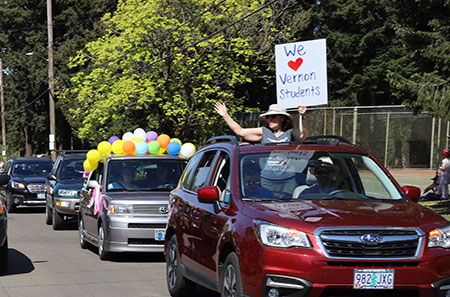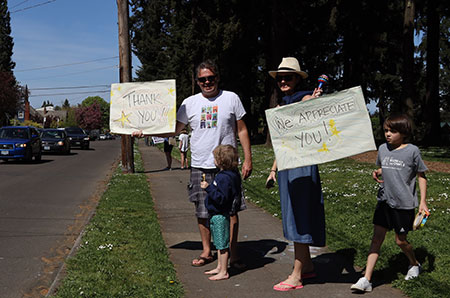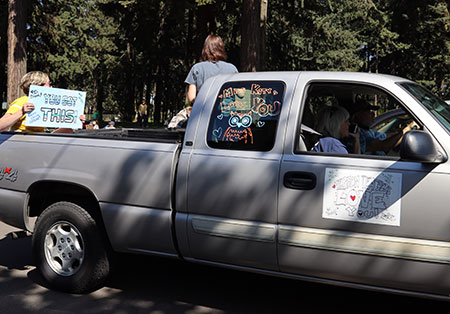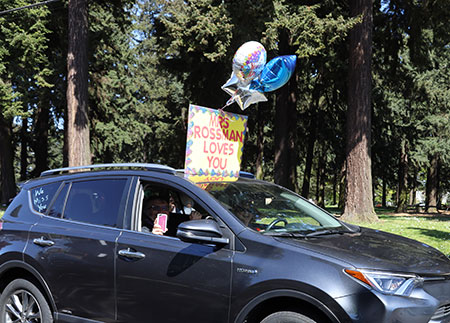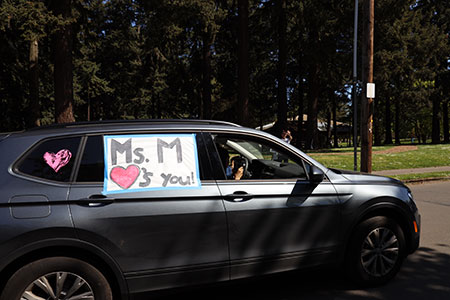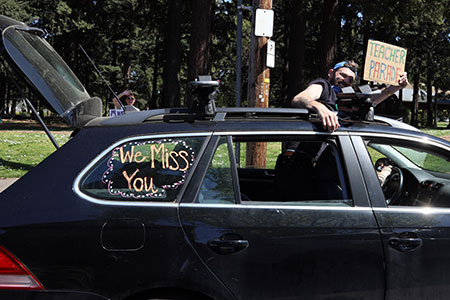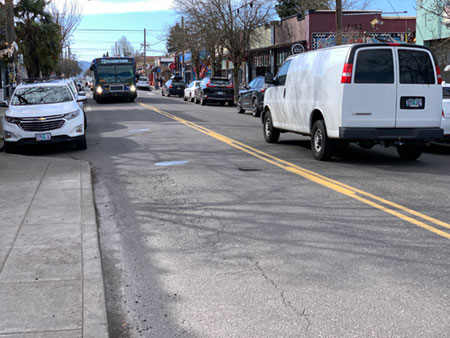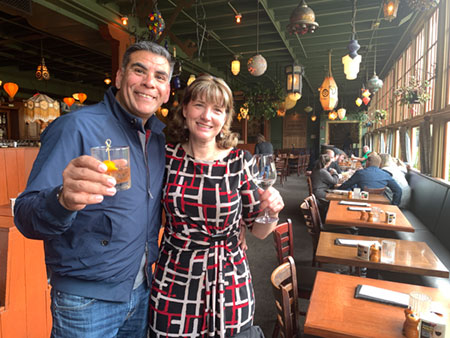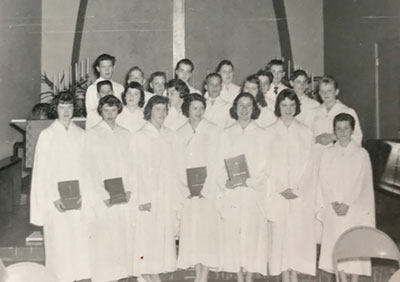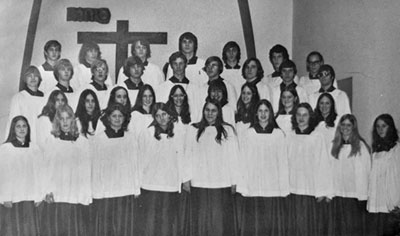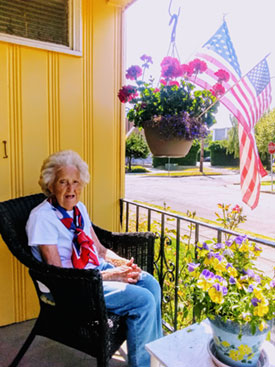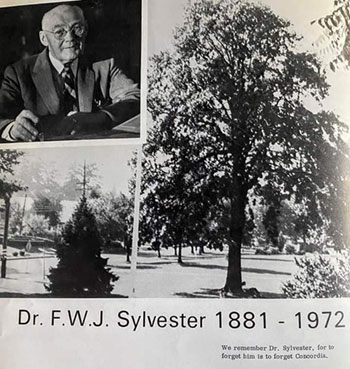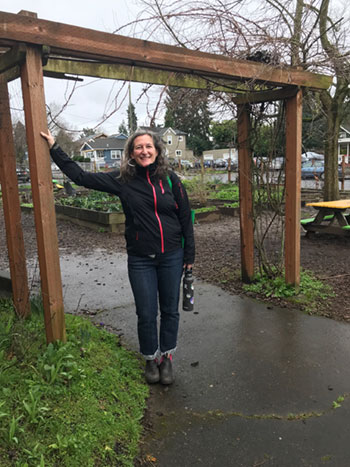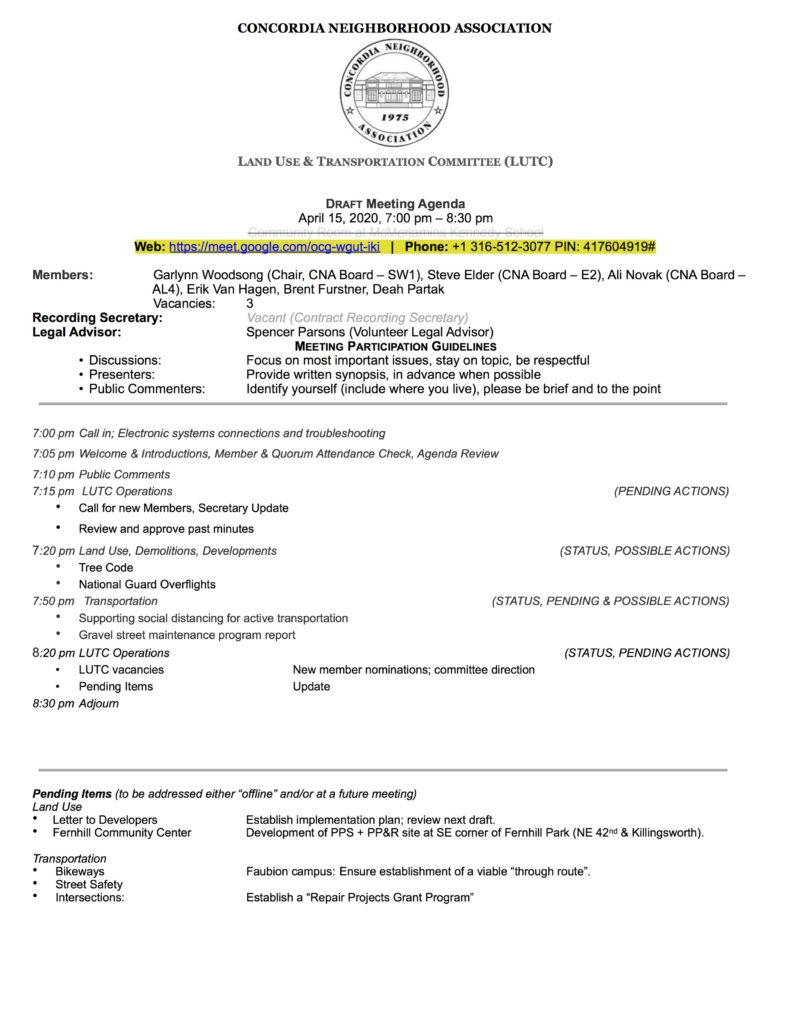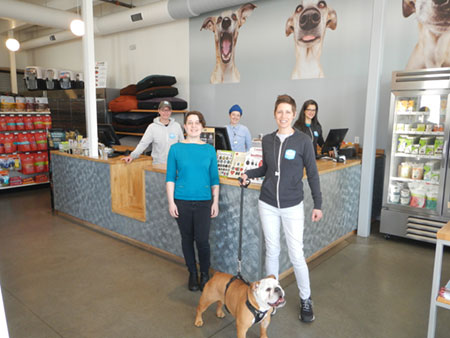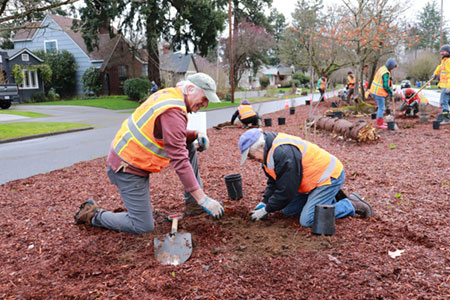By Tamara Anne Fowler & Nancy Varekamp | CNA Media team
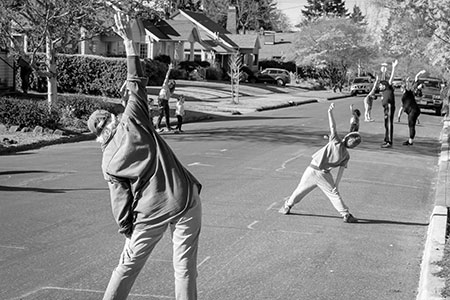
Sam Balto knows you can social distance without losing social connections. Beginning March 16, he’s led his Concordia neighbors – children and adults alike – in workouts five afternoons a week.
The physical education teacher at Cesar Chavez School in Portsmouth Neighborhood has been teaching for more than 10 years at schools in Boston and Washington, D.C. – in addition to serving as a Playworks coach.
He’s devoted to making streets safe for all road users, and is the Safe Routes to School champion at Cesar Chavez. Oregon Walks last year recognized his efforts with an award.
In fact, his “stay home, save lives” classes occur on the pavement in front of his house on 35th Avenue, which closes temporarily at both ends of the block.
“I saw a video from Italy where someone was leading people in his apartment building in exercise,” Sam explained. “He was in the courtyard and everyone was on their balconies.
“Even though we are practicing physical distancing right now, I knew that it was important to still be socially connected and to get physical activity. I knew it would be something fun to put a smile on everyone’s faces.”
So Sam texted his neighbors with an invitation to join the class. “We have a lot of children on our block, including my son Lev.”
Parents and neighbors without children at home also show up. Wife Kayci participates, and even the family dog Orli joins in.
The workouts aren’t silent. In addition to occasional grunting and groaning – and plenty of cheering – participants are motivated with “A Fishy Song.” To add it to your own exercise regimen, find it here.
By CNews press time, the exercise group had grown to more than 10 families. But the pavement continued to accommodate plenty of room for participants to respect six-foot distances from each other.
“Some kids on the block have invited their classmates,” Sam said. “Word of mouth and making sure to be inclusive of everyone is so important.
“People in the neighborhood have made class part of their afternoon routine,” Sam pointed out. “It’s important to be consistent every day, rain or shine.”
Physical fitness has been a lifetime passion for him. “During these uncertain times, activity is more important than ever.”
According to the National Institutes of Health, stress can reduce people’s immune systems.
“When you exercise, your body releases a chemical called endorphins,” Sam explained. “Endorphins trigger a positive feeling in the body and help reduce stress.”
